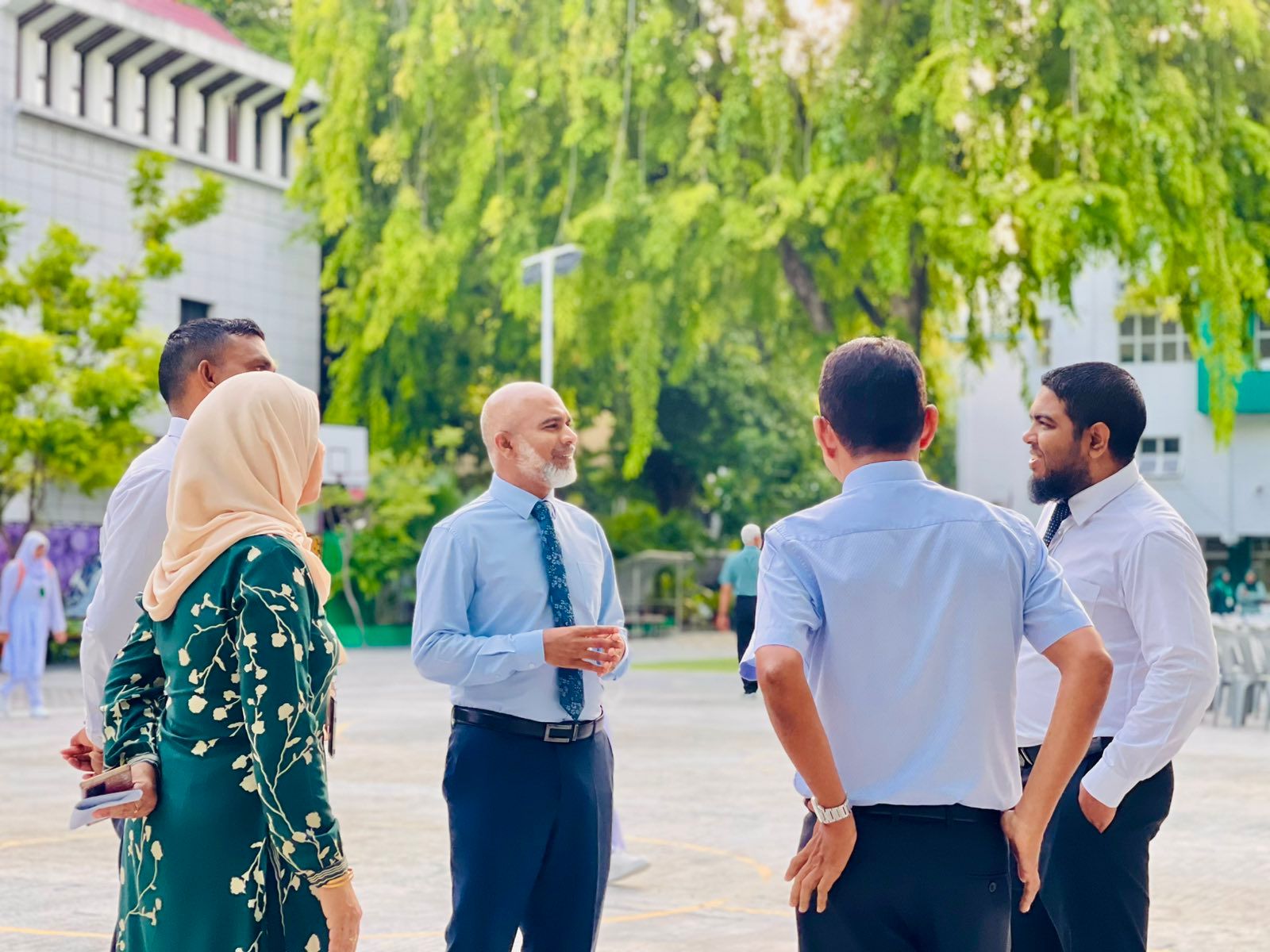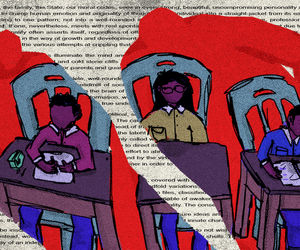New academic year begins with sustained influx to Malé schools
A digest of yesterday's top story.

08 Apr 2025, 09:00
Schools across the Maldives reopened for the new academic year on Monday following a month-long holiday during Ramadan.
Around 90,000 students returned to classes, including 5,000 new students enrolled in the first grade, of whom more than 2,000 joined schools in the Greater Malé Region, reflecting the country’s stark urban-rural divide and an uninterrupted migratory flow to the capital.
The steady exodus to Malé continued with 1,200 students transferring from schools on other islands as their families relocated in search of better education.
Students in 19 schools across Malé and the suburbs of Hulhumalé and Vilimalé represent 33 percent of the student population. About 21 percent of education staff work in Malé schools as well.
According to the UN Human Development Index, education measured by years of schooling was the highest contributing factor to inequality in the Maldives with a person living in Malé likely to finish more years of schooling.
Maldivians achieve 12 years of schooling, a higher average than South Asia, but the figure drops to eight years when adjusted for quality of education, a World Bank study to assess human capital in the Maldives showed last year.
Ahead of the new academic year, more than 500 students also transferred between different schools in the atolls.
There were 11,000 active teachers nationwide, of whom 10,000 work in public schools, accounting for one teacher for every eight students.
Of the 90,000 students in the country, 84,000 are enrolled in 217 government schools.
This year’s shortened academic year will end on December 28. The current administration revised the academic calendar to revert the annual holidays to the end of the year.
On Sunday, Education Minister Ismail Shafeeu dismissed criticism over incomplete preparations. The distribution of schoolbooks and assignment of teachers were better than previous years, he insisted on state media. But he acknowledged delays caused by last-minute transfer requests and the late resignation of some expatriate teachers after the holidays.
On Monday, Shafeeu visited several schools in Malé and participated in the morning assembly at Aminiyya School.
In a message on the occasion, the minister announced plans to revise the national curriculum this year. Other initiatives planned by the ministry include developing digital versions of textbooks and workbooks for key stage four and administering the National Assessment for Learning Outcomes (NALO) for students completing key stage three. A new education management system incorporating artificial intelligence will be rolled out this year, he said.
Shafeeu encouraged students to “face the new year with new strength,” urging them to uphold Islamic values, be respectful and dutiful towards their parents, take on responsibilities, and treat one another with respect. Vice President Hussain Mohamed Latheef also shared a message on X, encouraging students to work hard and to strive for success.
Later in the day, the education ministry enlisted three state-owned companies to complete unfinished school construction projects on 18 islands, following the termination of previous contracts due to delays by previous contractors.
Discussion
No comments yet. Be the first to share your thoughts!
No comments yet. Be the first to join the conversation!
Join the Conversation
Sign in to share your thoughts under an alias and take part in the discussion. Independent journalism thrives on open, respectful debate — your voice matters.




